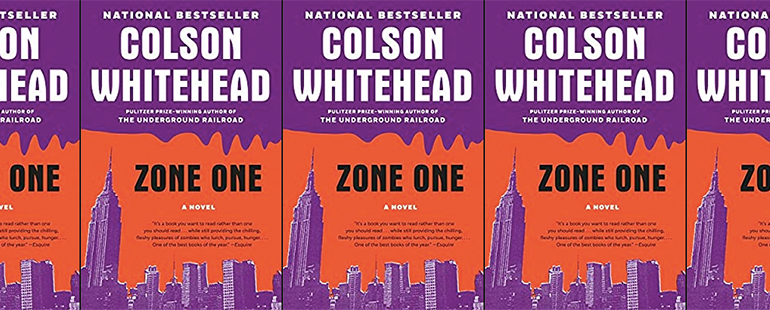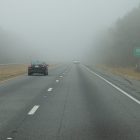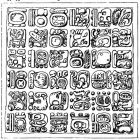Memory, Mediocrity, and Gentrification in Zone One

Although it was published almost a decade ago, Colson Whitehead’s 2011 Zone One feels like a novel born out of our current pandemic. After an unidentified plague sweeps the globe and turns those infected into zombies, civilian sweeper units are tasked with eradicating the remaining zombies in Manhattan, or Zone One, after the military’s larger-scale operation. An over-300-page book depicting only three days of real-time action, Zone One focuses much less on the traditional zombie novel gore and suspense and much more on the extended introspection of its central character, Mark Spitz. Most of the novel follows his flashbacks and reflections on his Post-Apocalyptic Stress Disorder (PASD) as he moves with his three-person sweeper unit through the Manhattan he used to dream of living in as a child, painting a portrait of a fallen society, the workings of gentrification before and after the plague, and the struggle to resist the onslaught of the zombies—who are not actually called zombies in the book, but are rather split into two categories: the skels, who resemble the ravaging living dead stopping at nothing to devour human flesh, and the stragglers, who are eternally stuck in a mundane action, and who cause Mark Spitz to contemplate the meaning of life and what draws us to certain jobs, places, and people. In a world where “the dead came to scrub the Earth of capitalism and the vast bourgeois superstructure, with its doilies, helicopter parenting, and streaming video,” Zone One eloquently investigates the psychological effects of a sudden catastrophic fall in world order that, while it may have felt distantly conceivable in 2011 and only too plausible today, perhaps says more about the priorities of our current societal structure than about any impending apocalypse.
A zombie novel that subverts all expectations, delivered in Whitehead’s quintessentially lush sentence-level craft and incisive social critique, Zone One considers the act of storytelling itself, such as in its focus on how we narrate ourselves to others in times of crisis. A fairly large section of the book is structured around Mark Spitz’s three versions of his “Last Night story,” describing encounters with different survivors and what might prompt him to tell them a specific variation of the events on the last night he spent before running from the skels. “The Silhouette was for survivors he wasn’t going to travel with for long,” while “the Anecdote,” “robust and carrying more on its ribs,” was for “those he might hole up with for a night”; “the Obituary,” the longest, most personal and detailed account, was “sacred,” reserved for close relationships in which “both the speaker and listener, sharer and receiver, wanted to be remembered.” In parsing out each version of himself, Mark Spitz boils down human relation to its necessary components, putting on display which aspects of connection we need in order to survive.
In some situations, a mere exchange of cursory details is enough to sustain a form of trust for a temporary period; in others, the interactive component of being remembered is sought out by way of sharing intimate details. Memory here is troubled; the human desire to be remembered or make an impact seems to disintegrate in the face of a zombie apocalypse where all that one can do is survive. To complicate matters, the stragglers—those infected that exist in a frozen state and generally pose no threat to the civilian sweeper units—frustrate Mark Spitz as he attempts to understand them. “The general theory contended that stragglers haunted what they knew,” but Mark Spitz states that “the why was always somewhere else.” He struggles to comprehend this phenomenon even as searching the stragglers’ bodies for identification and personal details triggers his PASD and makes him sick. Although the stragglers are never fully explained, their existence begs the reader to consider how we remember the dead, the “turned,” those no longer considered human who exhibit one final perpetual performance of the most human of banal jobs and tasks, such as filling balloons with helium or working a copy machine.
As his unit continually eradicates these stragglers, working toward the promise of a human return to Manhattan, Mark Spitz, however, adamantly refuses to engage with any “when this is all over” sentimentality. Fully aware that there may never be a return to any pre-plague sense of normalcy, he instead focuses on getting through each day and dealing with the effects of his PASD, a “vast galaxy of survivor dysfunction” that leaves everyone “fucked up in their own way; as before, it was a mark of one’s individuality.” Parallel to this resistance to future dreaming, Zone One sees Whitehead expunge the trope of the hero in Mark Spitz, who clings to his mediocrity as his only hope for surviving the onslaught of the skels. Whereas a traditional zombie novel might take on a supposedly average narrator and turn them into an unsuspecting hero, Mark Spitz’s mediocrity instead becomes the propelling force of the book. In a scene where he is completely surrounded by skels, so many that “it was impossible . . . . No way Mark Spitz was going to be able to get past them,” a sudden epiphany about the change in the social hierarchy of his new world shifts his perspective on his situation:
He could not die. This was his world now, in all its sublime crumminess, where intellect and ingenuity and talent were equally meaningless as stubbornness, cowardice, and stupidity . . . . He could not die . . . . He was a mediocre man. He had led a mediocre life exceptional only in the magnitude of its unexceptionality. Now the world was mediocre, rendering him perfect. He asked himself: How can I die? I was always like this. Now I am more me. He had the ammo. He took them all down.
Time and again, Mark Spitz’s mediocrity is what gets him through situations of certain death. In fact, his name, Mark Spitz, is a nickname given to him after he reveals to his friends that he can’t swim; they humorously nickname him after the nine-time Olympic champion swimmer, and this is the name that sticks throughout the novel. Almost never revealing any of his identifying features or characteristics, mediocrity consumes the character, becoming his defining trait. In this way, Whitehead turns our attention to what we perceive as exceptional, as a failure, or as ordinary: if the world were to crumble tomorrow, what would we cling to? Mark Spitz perhaps takes this to an extreme in idolizing his mediocrity, but the message still rings clear.
Throughout the book, Whitehead also maintains an overarching force of social critique, perhaps most evidently in the continuing theme of gentrification; as Mark Spitz and his unit sweep through the abandoned office buildings and high-rises of New York, the role of the gentrifier is continually questioned. As a young boy, Mark Spitz relished his visits to his Uncle Lloyd’s apartment in a tall, blue-sheathed building in Manhattan, where “the zoning commission had tucked the bribes into their coast, and now there he was, floating over the tapering island.” He describes watching the skyline from his uncle’s apartment, absorbed by the changing of the buildings, and how “in every neighborhood the imperfect in their fashion awaited the wrecking ball and their bones were melted down to help their replacements surpass them, steel into steel. The new buildings in wave upon wave drew themselves out of rubble, shaking off the past like immigrants. The addresses remained the same and so did the flawed philosophies. It wasn’t anyplace else. It was New York City.” This bittersweet promise of New York City—although Mark Spitz himself never fully integrated into its shimmer, spending his childhood on the adjacent Long Island instead—is part of what renders the work of the sweeper units so anticipative; the idea of Manhattan as a city of perpetual change and opportunity instills hope in the majority of the uninfected who live in regulated, overly-positive camps such as “Happy Acres,” yet Whitehead undergirds this illusion with the reality of gentrification and the question of who it pushes out.
At the end of the book, however, it is not the remainder of humanity who retake the streets, but the skels. After breaking the barricade that had been keeping them out of Zone One, “a portion of the skels dallied to partake of the stunned soldiers at the foot of the wall, but most coursed down the avenue after other sustenance. The majority of the abominations did not stop to feed, as if being loosed upon the emptied streets was meal enough, as if right now it sufficed for them to walk, to persist beyond death.” In this scene, the skels become the gentrifiers, even surpassing their otherwise insuppressible need to devour human flesh whenever it is near simply to overtake the space of the streets, to proclaim, in Mark Spitz’s understanding, “I am here now, I have existed, I exist still. This is our town.” As Mark Spitz and his companions attempt to escape the onslaught of the skels, he remarks on the traffic on the Brooklyn-bound bridges: “The problem was the legions of dead invariably massed there and stretching the entire lamentable length of the span, all the way to the other borough. He’d always thought it strange, the devotion of the congregation there, as if in their fallen state they still hungered for Manhattan. Then as now, they believed the magic of the island would cure them of their sicknesses.” Through rendering the skels as a recognizable gentrifying force of New York City—engulfing the streets and literally consuming anyone in their way, packing the bridges with bottle-neck traffic—Whitehead inverts the reader’s assumptions of good and evil, blurring the boundary between zombie and human, and thus calls gentrification itself into question: who is pushed out of the city, who is devoured, in this battle to retake Zone One?
Reading this book today, it seems only too prescient—in part due to the pandemic that collapses global order before Zone One commences, but also because in the past nine years we have only strengthened the societal ills Whitehead critiques. As he contemplates these issues through Mark Spitz’s meandering flashbacks and narrative jumps, Whitehead continually delivers his uniquely elegant prose; Zone One, despite its eerie resonance with our current situation, is truly beautiful to read. Combining this craft and clairvoyant perspective with tropes of the zombie novel, Whitehead unsettles our conception of what it means to be human, to connect with each other, and how we understand what defines us as individuals.
This piece was originally published on December 9, 2020.



